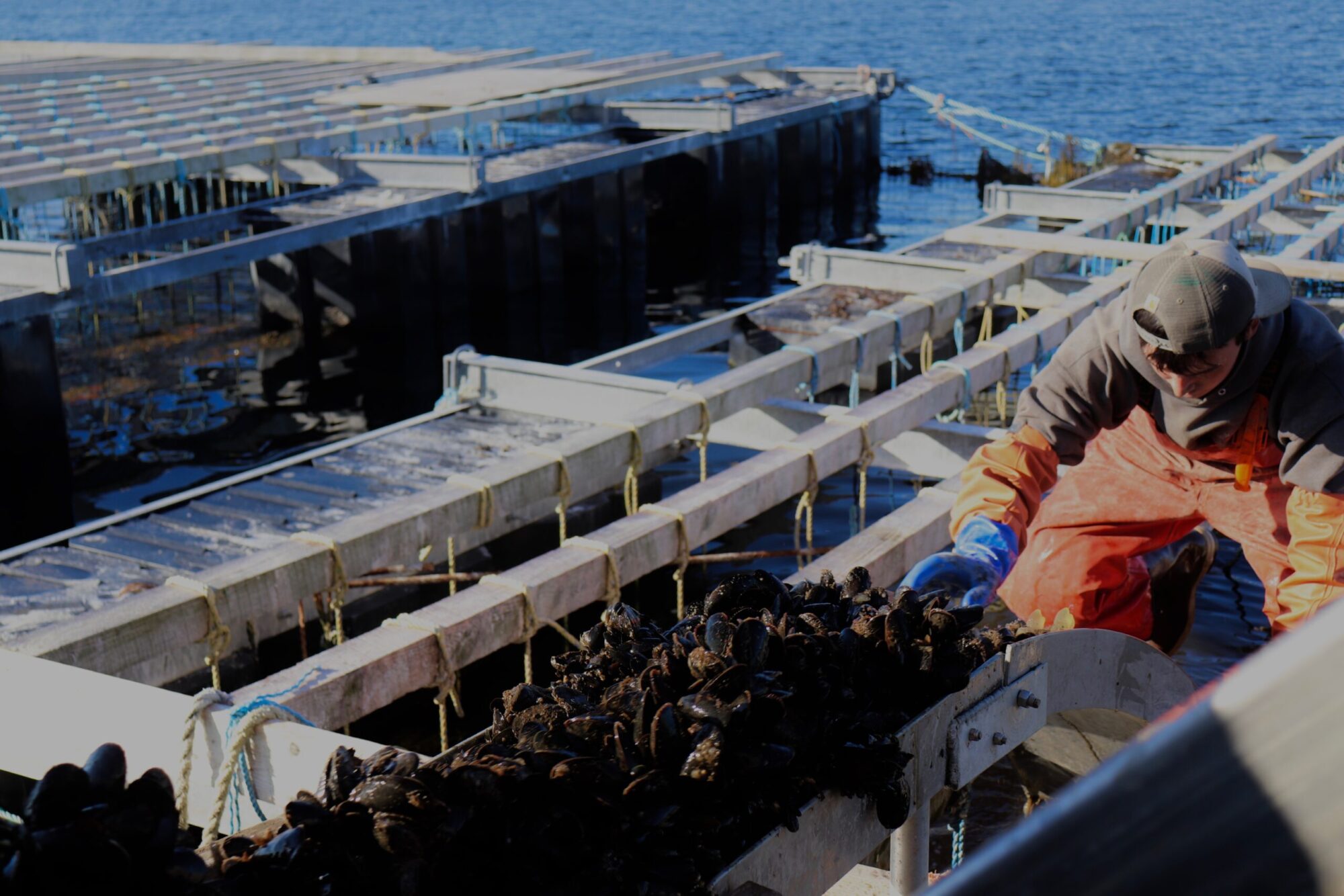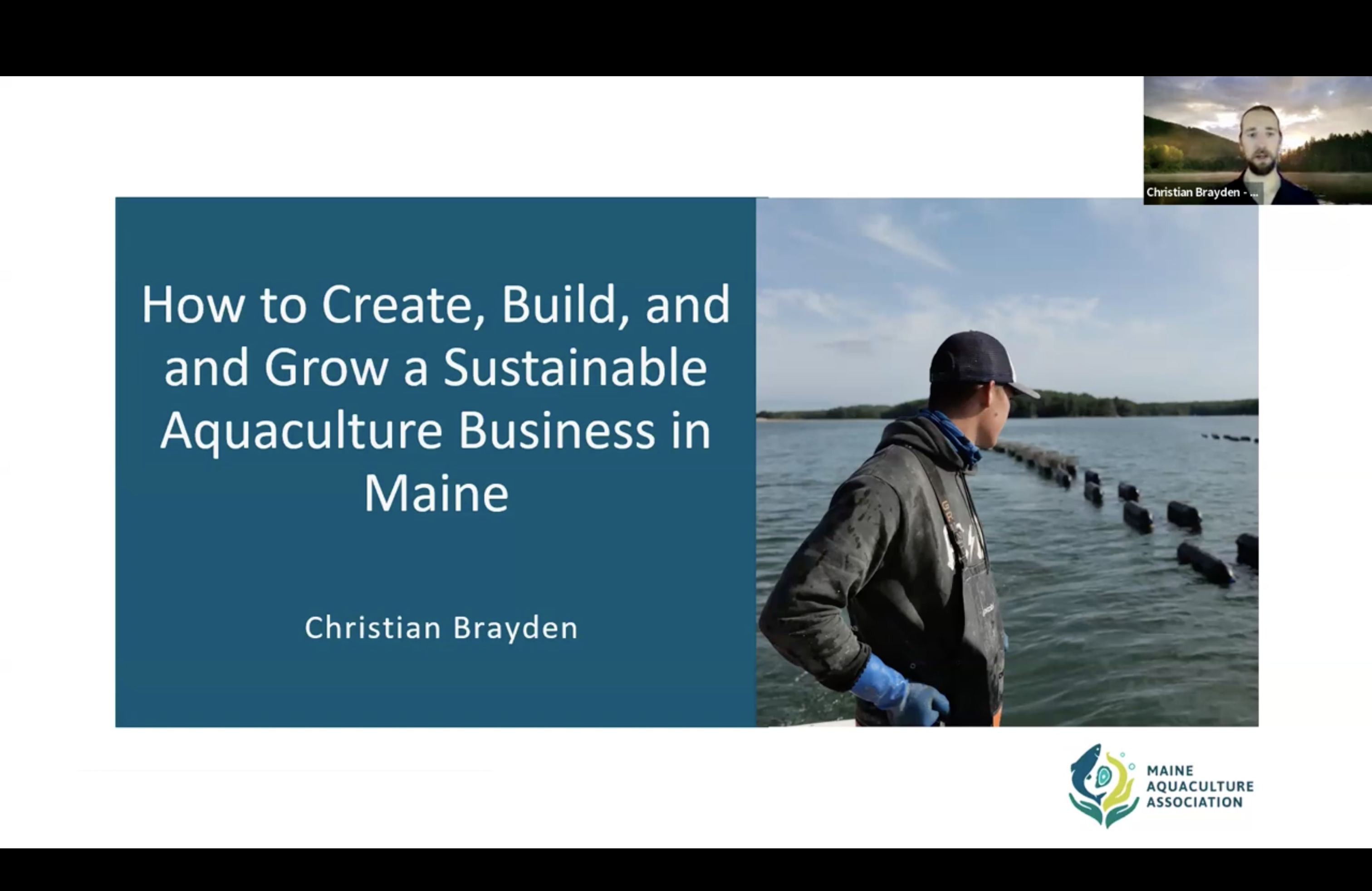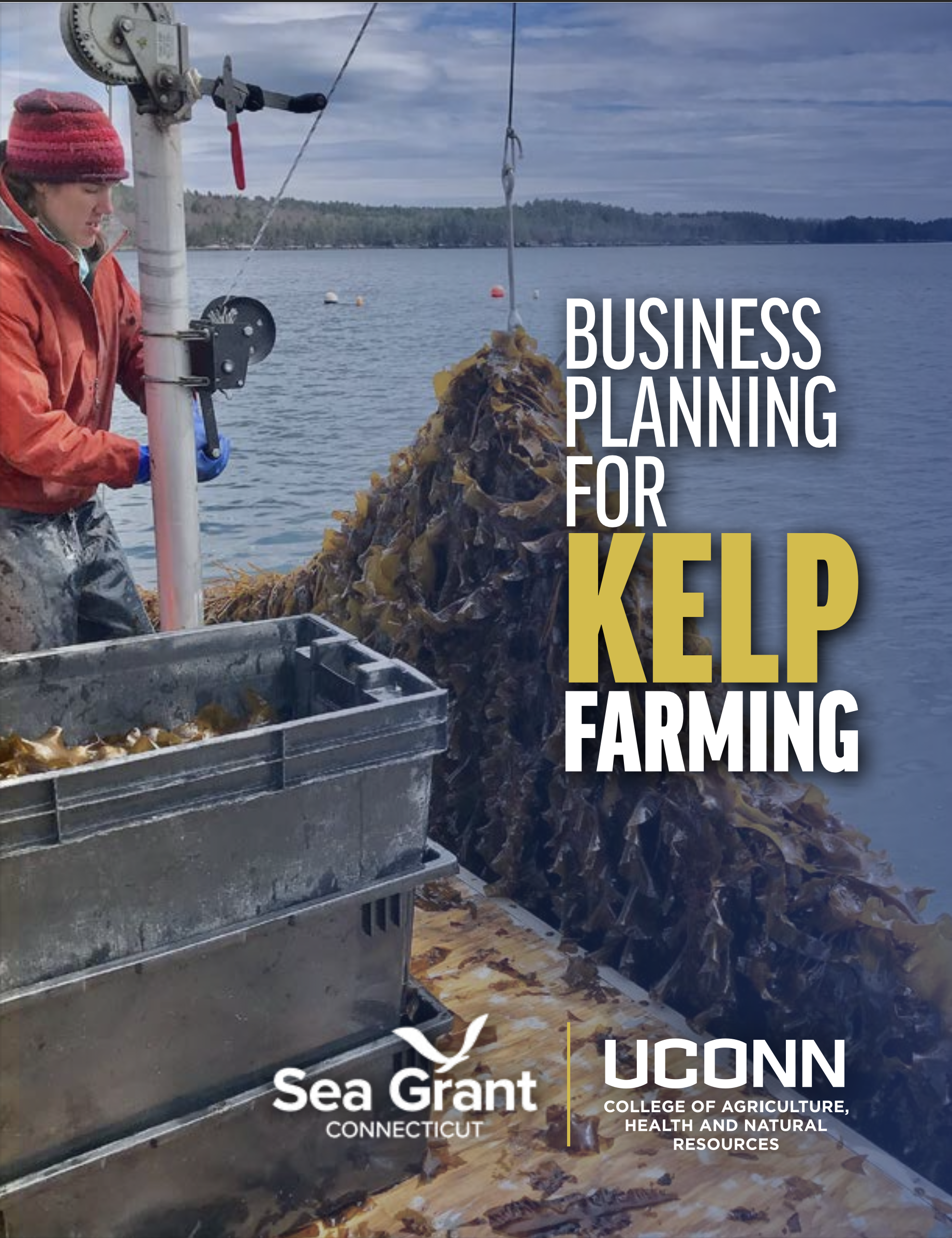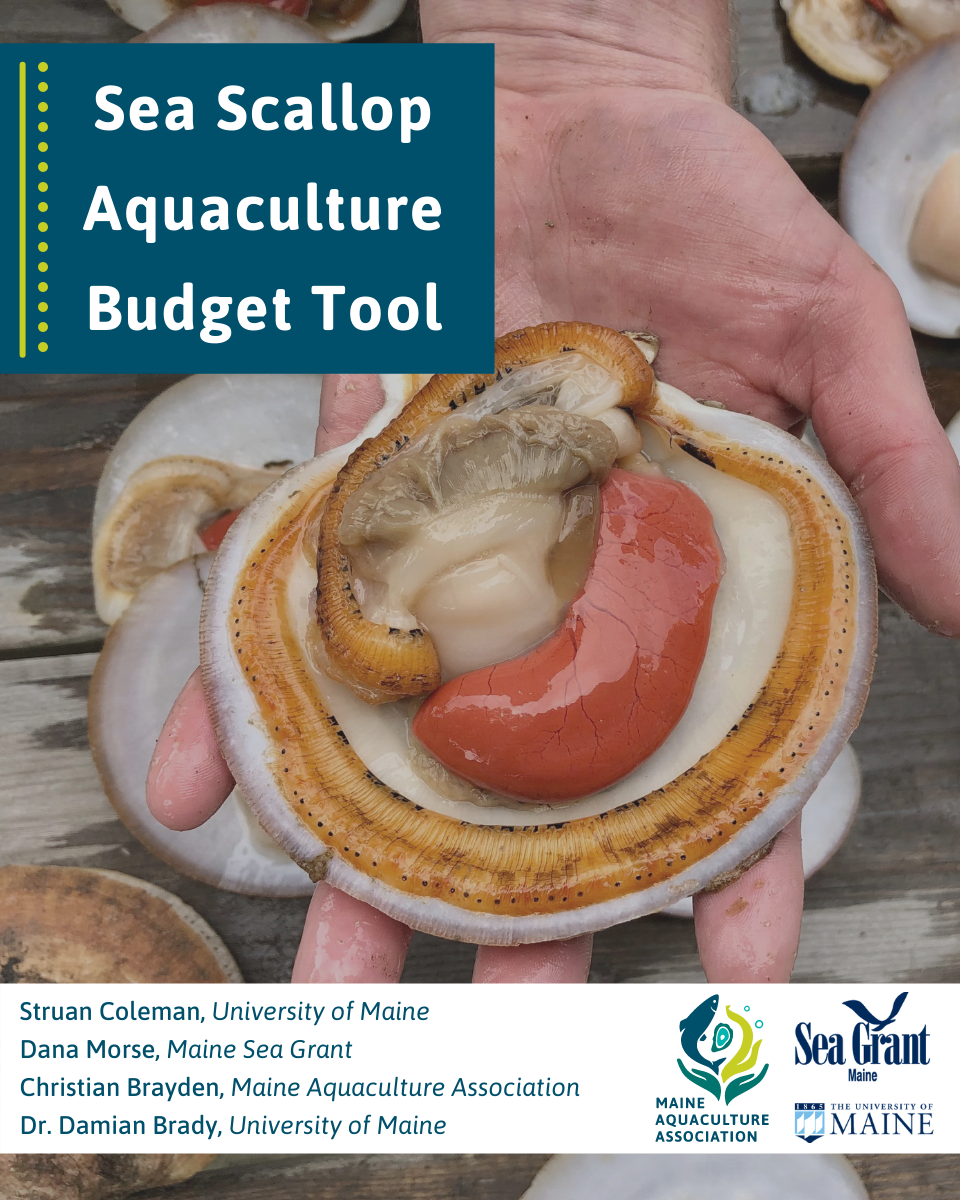These business planning tools are designed to provide Maine aquaculture business owners with updated resources and capabilities to help strengthen their businesses. Each suite of tools includes software to develop a production plan and a business plan for the grower’s species of choice (oysters, mussels, scallops, or seaweed), complete with user manuals and a two-hour, one-on-one training session with MAA Project Manager Christian Brayden.
The business plan features include short and long-term budget projections and tracking, financial projection and analysis tools, monthly cash flow projections, costs of production analysis, profitability analysis, sensitivity analysis, and breakeven analysis. The production plans offer additional capabilities such as short and long-term production projections and tracking, data-based growth projections, monthly sales planning and tracking, and a production calendar. If you are interested in setting up a business plan, please reach out to Christian at christian@maineaqua.org.
Webinar Recording: How to Create, Build, and Grow a Sustainable Aquaculture Business in Maine
The recording of this webinar from the Maine Aquaculture Innovation Center series, “How to Create, Build, and Grow a Sustainable Aquaculture Business in Maine”, is now available.
This webinar is for those interested in starting or expanding an aquaculture business in Maine. It discusses crucial components of building a successful, sustainable aquaculture business in Maine, including topics like priority assessment, goal setting, and production planning. The webinar sets you up with the proper resources, contacts, and more to prepare you for planning the future of your business and how to begin improving it today. Click here to watch the recording.
Business Planning for Kelp Farming
Business Planning for Kelp Farming is a 75-page guide and resource listing for new and prospective kelp farmers. The guidebook is linked to a flexible financial model (worksheet) which will allow users to see dollars-and-cents impacts of their plans as they evolve.
Created in response to a critical missing tool identified by the National Seaweed Hub Needs Assessment of 2020, it was written by Tammy Warner, professor of management at Keene State University, and Robert Pomeroy, extension specialist emeritus at CT Sea Grant, under the direction of Anoushka Concepcion, CTSG associate extension educator who focuses on seaweed aquaculture. The project was funded by CT Sea Grant and the UConn College of Agriculture, Health and Natural Resources.
DISCLAIMER: the results of this guide should be taken with the same precautions and caveats as any other business projection. It is simply one tool designed to help guide decision making and should not be used as the sole source of projected future earnings or financial success. Results may vary depending on the specifics of your farm.
Sea Scallop Aquaculture Budget Tool & User Manual
This scallop aquaculture budget tool is designed to help either new growers or established farmers better understand how specific changes to the production process, biological inputs, or whole scallop market will impact their business. The data used to build this model are based on interviews and conversations with growers in Maine. The values used here are designed to simulate a ‘typical’ farm. In practice, however, all farms are different and require a unique set of parameters. Therefore, this tool has areas where you may input the specifics of your business to more accurately project future revenues and costs. A ‘User Manual’ accompanies this tool and should be read in full before any inputs are made or results are analyzed. The User Manual contains further information regarding scallop aquaculture in Maine and a more detailed description of the sources of the data used here.
DISCLAIMER: the results of this tool should be taken with the same precautions and caveats as any other financial projection. It is simply one tool designed to help guide decision making and should not be used as the sole source of projected future earnings or financial success. Results may vary depending on the specifics of your farm.



